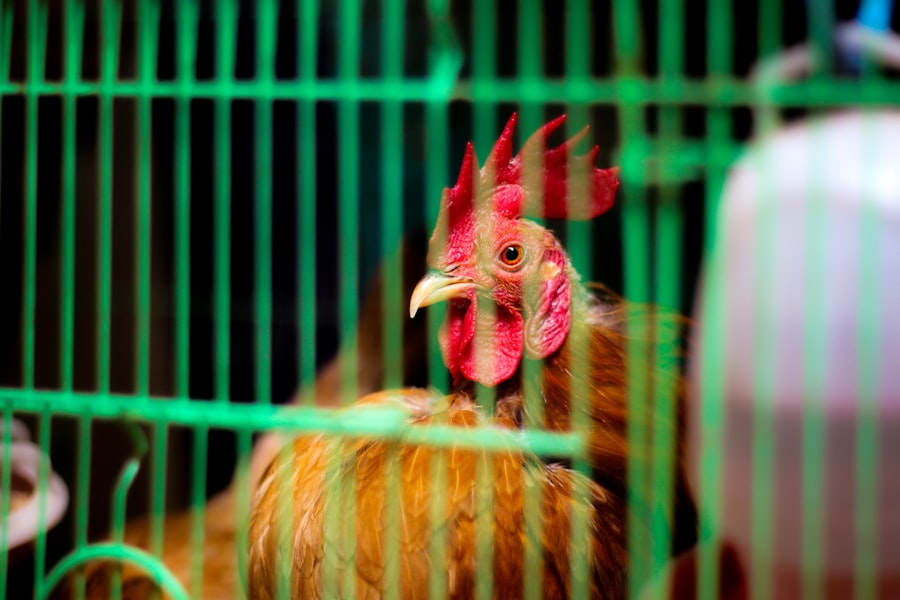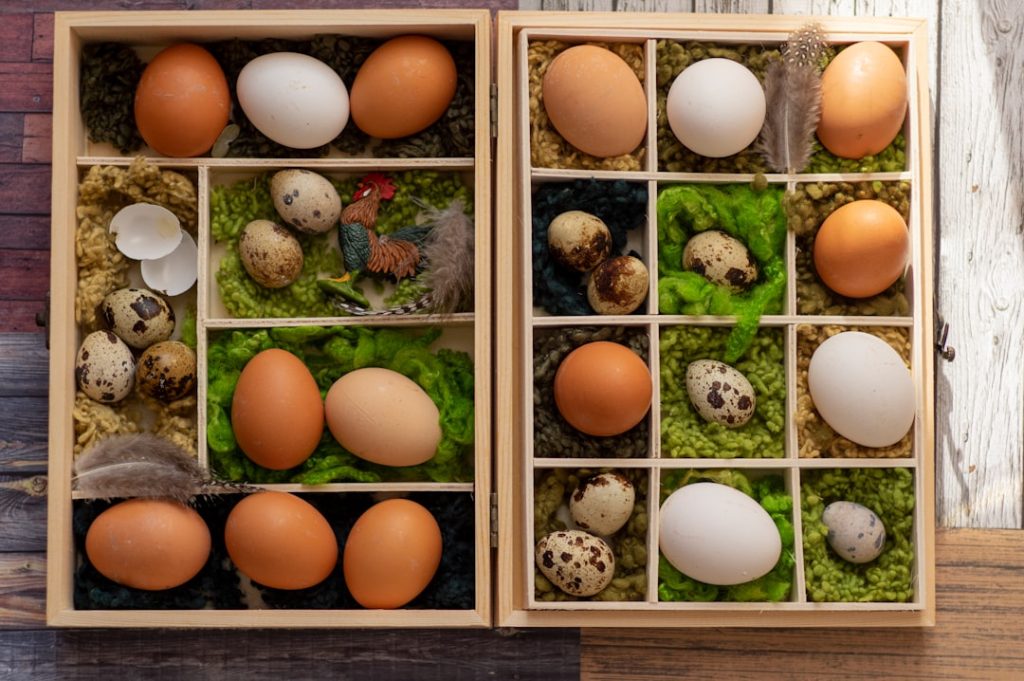When setting up a chicken coop, several initial costs must be considered. The primary expense is the coop itself, which can range from $200 to $600 for a pre-made structure, depending on size and quality. Building a coop requires materials such as lumber, wire mesh, roofing materials, and hardware, typically costing between $150 and $300.
Essential equipment includes nesting boxes, perches, feeders, and waterers, which can total $50 to $100. Additional setup costs may include a heat lamp for chicks ($20 to $50) and a thermometer ($10) to monitor coop temperature. The cost of purchasing chickens varies by breed and age, averaging $10 to $30 per bird.
For three chickens, this initial cost ranges from $30 to $90. Feed and bedding for the first few months can cost between $50 and $100. In total, the initial setup costs for keeping three chickens can range from $360 to $1150.
This variation depends on factors such as coop construction method, chicken breed and age, and equipment quality.
Table of Contents
Key Takeaways
- Initial setup costs include purchasing a coop, feeders, waterers, and heat lamps, and can range from 0 to 0.
- Monthly maintenance expenses for 3 chickens, including feed and bedding, can average around to .
- Feed and bedding costs can amount to approximately to per month for 3 chickens.
- Veterinary care expenses, including vaccinations and check-ups, can total around to 0 per year for 3 chickens.
- Coop and run construction costs can range from 0 to 00, depending on the size and materials used.
Monthly maintenance expenses
Feed Costs
One of the main ongoing costs of keeping chickens is feed, which can amount to around $20 to $30 per month for three chickens. This cost can vary depending on the type of feed you choose and whether you supplement with treats or kitchen scraps.
Bedding and Cleaning Supplies
Additionally, you will need to budget for bedding material, such as straw or wood shavings, which can cost around $10 to $20 per month. Other monthly expenses may include the cost of cleaning supplies for the coop, such as disinfectant and brushes, which can add up to around $10 per month.
Equipment Replacement and Supplements
Another important monthly expense to consider is the cost of replacing any worn-out or damaged equipment, such as feeders, waterers, or heat lamps. While these costs may not occur every month, it’s important to budget for them as needed. Additionally, if you choose to supplement your chickens’ diet with treats or supplements, such as oyster shell or grit, you will need to factor in these costs as well.
Total Monthly Expenses
Overall, the monthly maintenance expenses for keeping three chickens can amount to around $40 to $70 per month, depending on the type of feed and bedding you choose, as well as any additional supplements or cleaning supplies you invest in.
Feed and bedding costs
One of the ongoing expenses of keeping chickens is the cost of feed and bedding. The type of feed you choose for your chickens will depend on their age and purpose (e.g., laying hens or meat birds). A 50-pound bag of layer feed typically costs around $15 to $25 and can last three chickens for about a month.
If you choose to supplement with treats or kitchen scraps, you may need to budget an additional $5 to $10 per month. Additionally, if you have chicks or growing birds, you will need to budget for chick starter feed, which can cost around $20 for a 25-pound bag. In terms of bedding, straw is a popular choice for chicken coops and can cost around $5 to $10 per bale.
Wood shavings are another option and can cost around $10 to $15 per bag. The amount of bedding you will need will depend on the size of your coop and how often you clean it out. On average, you can expect to spend around $10 to $20 per month on bedding for three chickens.
Overall, the monthly cost of feed and bedding for three chickens can range from $30 to $55, depending on the type of feed and bedding you choose and whether you supplement with treats or kitchen scraps.
Veterinary care expenses
While chickens are generally low-maintenance pets, it’s important to budget for veterinary care expenses in case your birds become ill or injured. The cost of veterinary care for chickens can vary depending on the services required and the veterinarian’s fees in your area. A routine check-up for a chicken can cost around $50 to $100, while more complex procedures or treatments may cost several hundred dollars.
Additionally, if your chickens require medication or supplements, you will need to factor in these costs as well. It’s also important to consider the cost of vaccinations and preventative care for your chickens. Depending on your location and local regulations, you may need to vaccinate your chickens against common diseases such as Marek’s disease or Newcastle disease.
The cost of vaccinations can vary but generally ranges from $1 to $5 per dose per bird. Additionally, if you choose to use preventative treatments such as dewormers or mite control products, you will need to budget for these expenses as well. Overall, it’s important to set aside a veterinary care fund for your chickens in case they require medical attention, with an average monthly budget of around $20 to $50.
Coop and run construction costs
The construction of a chicken coop and run is a significant initial expense when starting a backyard flock. The cost of building a coop will depend on its size, materials used, and whether you choose to build it yourself or hire a contractor. If you decide to build a coop yourself, you will need to purchase materials such as lumber, wire mesh, roofing materials, and hardware.
The cost of these materials can range from $150 to $300 for a small to medium-sized coop. If you choose to hire a contractor to build the coop for you, labor costs can add several hundred dollars to the total expense. In addition to the coop, you will also need to construct a secure outdoor run for your chickens.
The cost of building a run will depend on its size and materials used. A basic run made from wire mesh and wooden posts can cost around $100 to $200 for a small to medium-sized enclosure. If you choose to use more durable materials such as metal fencing or concrete footings, the cost can increase significantly.
Overall, the construction costs for a coop and run for three chickens can range from $250 to $700 if you choose to build it yourself or up to $1000 if you hire a contractor.
Miscellaneous expenses

Predator-Proofing Expenses
One such expense is predator-proofing your coop and run. This may involve installing hardware cloth around the perimeter of the coop and burying it underground to prevent digging predators such as raccoons or foxes from gaining access. The cost of predator-proofing materials can range from $50 to $100 depending on the size of your coop and run.
Egg Carton Expenses
Another miscellaneous expense is the cost of egg cartons if you plan on selling or giving away eggs. A pack of 12 egg cartons typically costs around $5 to $10 and can last several months depending on how many eggs your hens lay.
Coop Customization and Additional Equipment
Additionally, if you choose to decorate or personalize your coop with signs or artwork, you will need to budget for these expenses as well. Other miscellaneous costs may include purchasing additional equipment such as automatic door openers or water heaters for winter months.
Total Miscellaneous Expenses
Overall, it’s important to budget an additional $50 to $150 for miscellaneous expenses when keeping three chickens.
Total cost of keeping 3 chickens
When considering all the expenses associated with keeping three chickens, it’s important to calculate the total cost over time. The initial setup costs for a coop and necessary equipment can range from $360 to $1150 depending on various factors such as whether you purchase a pre-made coop or build one yourself, the breed and age of the chickens, and the quality of the equipment you invest in. Monthly maintenance expenses for feed and bedding can amount to around $40 to $70 per month depending on the type of feed and bedding chosen.
In addition to these ongoing expenses, it’s important to budget for veterinary care expenses in case your birds become ill or injured. The average monthly budget for veterinary care is around $20 to $50. The construction costs for a coop and run for three chickens can range from $250 to $700 if built yourself or up to $1000 if hiring a contractor.
Finally, miscellaneous expenses such as predator-proofing materials and egg cartons should be budgeted at an additional $50 to $150. When adding up all these expenses over time, it’s clear that keeping three chickens requires a significant financial investment. However, many chicken keepers find that the rewards of fresh eggs and the joy of caring for their feathered friends make it all worthwhile.
By carefully budgeting for initial setup costs, monthly maintenance expenses, veterinary care expenses, coop and run construction costs, and miscellaneous expenses, you can ensure that your backyard flock remains happy and healthy without breaking the bank.
If you’re considering keeping chickens, you may be wondering how much it will cost to care for them. According to a helpful article on Poultry Wizard, the cost of keeping 3 chickens can vary depending on factors such as feed, housing, and healthcare. For more information on where to put a chicken coop, check out this article for some helpful tips.
FAQs
What are the initial costs of keeping 3 chickens?
The initial costs of keeping 3 chickens include purchasing a coop, feeders, waterers, bedding, and the chickens themselves. These costs can range from $200 to $500, depending on the quality and size of the items purchased.
What are the ongoing costs of keeping 3 chickens?
The ongoing costs of keeping 3 chickens include purchasing chicken feed, bedding, and occasional veterinary care. On average, the monthly cost of keeping 3 chickens is around $20 to $30.
What are the additional costs of keeping 3 chickens?
Additional costs of keeping 3 chickens may include predator-proofing the coop and run, purchasing supplements or treats for the chickens, and any unexpected veterinary expenses. These costs can vary depending on the specific needs of the chickens and the location of the coop.
Are there any cost-saving measures for keeping chickens?
Some cost-saving measures for keeping chickens include buying feed in bulk, using DIY methods for coop and run construction, and sourcing bedding materials from local farms or suppliers. Additionally, practicing good preventative health care for the chickens can help reduce veterinary expenses.
Meet Walter, the feathered-friend fanatic of Florida! Nestled in the sunshine state, Walter struts through life with his feathered companions, clucking his way to happiness. With a coop that’s fancier than a five-star hotel, he’s the Don Juan of the chicken world. When he’s not teaching his hens to do the cha-cha, you’ll find him in a heated debate with his prized rooster, Sir Clucks-a-Lot. Walter’s poultry passion is no yolk; he’s the sunny-side-up guy you never knew you needed in your flock of friends!







